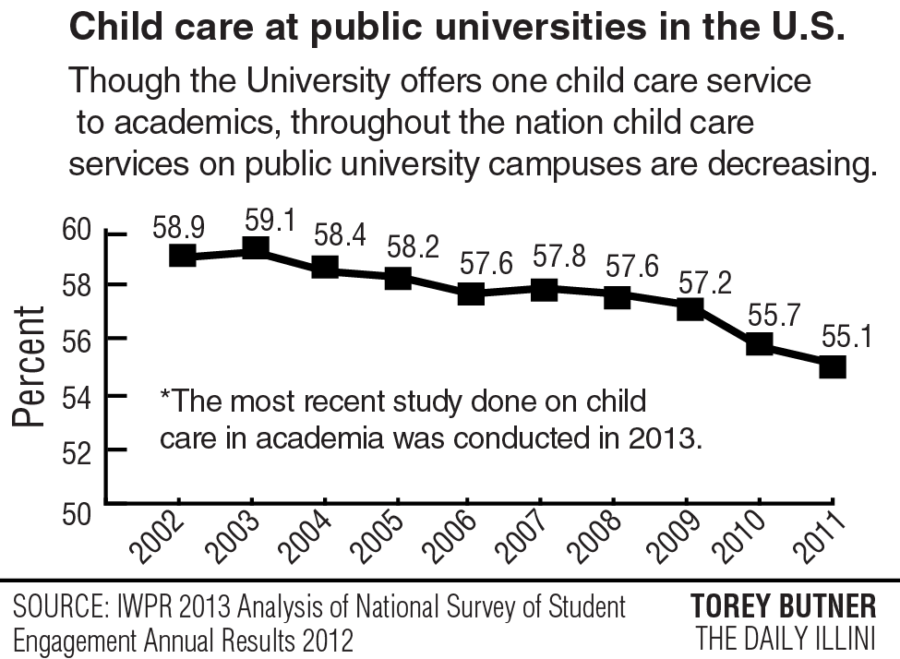Child care poses a problem for academics
September 28, 2015
Students often only realize their professors’ role in the classroom, but another major part of a job in academia entails attending conferences to present the research professors conduct.
Rachel S. Harris, professor in comparative literature, recently contested the child-care challenges many scholars face in the realm of academic conferences.
“There’s only a few conferences which are willing to provide child-care services to academics who have babies, and those who provided the services such as (the American Political Science Association) are sometimes too expensive for academics to afford, which particularly affects graduate students,” she said.
And if academics can afford the child-care services offered by conferences, information about whether child-care service will be provided can be unclear.
Academics need to apply for child-care services before they attend the conferences; however, the conferences will decide whether to provide child-care services based on how many academics apply for it, Harris said. Consequentially, academics may show up to a conference only to find out that child-care services will not be provided.
Get The Daily Illini in your inbox!
There is also the chance conference organizers will decide the risk of providing child care outweighs the benefit it provides academics.
As with any child-care program, the conferences must assume liability for any children in their care; conferences must then consider purchasing liability insurance for their programs, Harris said.
“The organizers of those conferences don’t know how important this problem is,” Harris said. “The issues need to lead the conferences organizations, not (be) an afterthought.”
For academics, she said, conferences also give professors a chance to find job opportunities and announce research and ideas. However a lack of child care may deter academic parents, especially single-parent academics, from attending conferences.
“The situation is getting worse over these years: nothing has become organized, and you still need to find your own baby sitter, while finding baby sitters in a different city is much harder than finding in your living city,” Harris said.
The University itself offers several resources for parents and academics searching for child-care services.
The Child Service Center and the Child Development Lab, offers child-care services and information to students, faculty and the Champaign-Urbana community.
“Though the center itself does not provide child-care services to parents like what Child Service Lab does, they do provide information not only about child-care, but also about licenses, child-care programs in surrounding areas,” said Dolores R. Squire, Child Care Service Center team manager.
The center also recruits college students to be available as baby sitters when parents cannot send their child to the lab.
“Parents can hire these students to provide temporary child-care services when they cannot find the child-care service provider immediately,” Squire said.
She said the center’s goal is to help the families acquire the values of child care programs and acknowledge the importance of early child-care education.
“Because of the costs, it is hard for the University to provide child-care services directly, instead, it is better for the University to offer options and choices for parents,” Squire said.
While the availability of services at conferences may pose an issue, Squire said the child-care services provided on campus fulfill professors needs.







